Kundapur, December 31: On Sunday, the 28th edition of the 'Clean Beach Green Kodi' campaign took place, organized by the Kodi Bearys Group of Educational Institutions.
The campaign was launched by Syed Muhammad Beary, the Convenor of Bearys Group of Educational Institutions. It aimed to instill a sense of responsibility in the students. Syed Beary emphasized that the youth play a pivotal role in shaping the country's future and spoke about the importance of philanthropic activities for personal development. Aligning with the ideals of National Poet Kuvempu, he advocated embracing the concept of a 'World Family.'
The event was attended by Haji Abdul Rahman, President of Bearys Group of Educational Institutions, Dr. Asif Beary, Trustee , Dharmadarshi Gopal Pujari, Kodi Chakrashwari Temple , and various heads of affiliated organizations. Members of the School Development and Advisory Board, as well as citizens, also participated.
A significant number of students, along with teaching and non-teaching staff from Kodi Bearys Group of Educational Institutions, actively engaged in the beach cleanliness campaign.
Stolen fans of boats found:

In a noteworthy turn of events, while the students were cleaning the beach, they discovered two large fans that had been stolen from a boat two months prior. The boat, owned by Gadi Muhammad, a resident of Kodi, had reported the theft to the police, but the fans remained unrecovered. The thieves had buried the stolen fans under the sand on Kodi's beach. Grateful for their discovery, Muhammad expressed his gratitude to the students for their efforts in locating the fans.
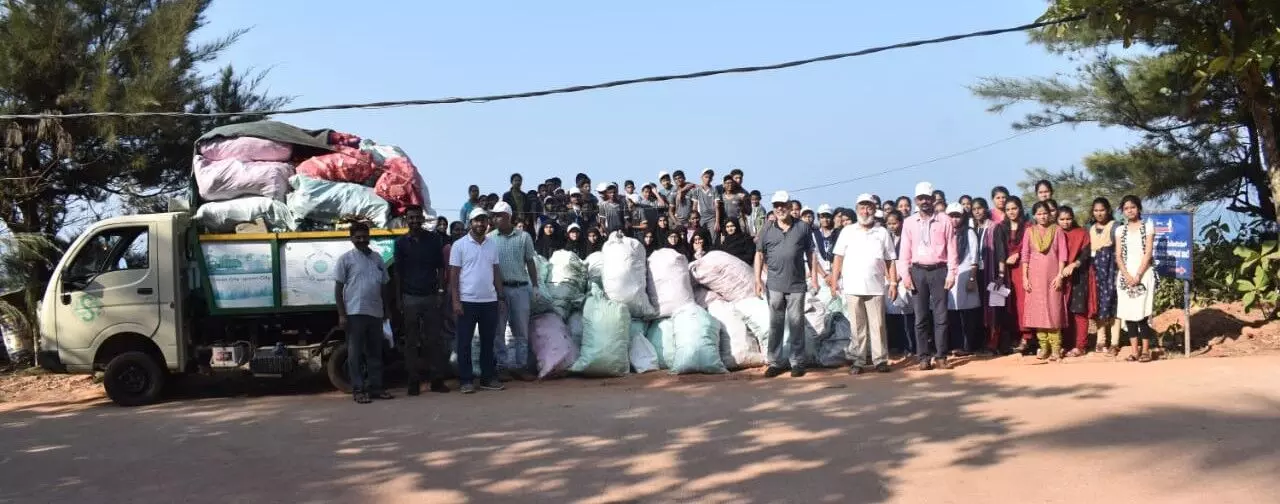

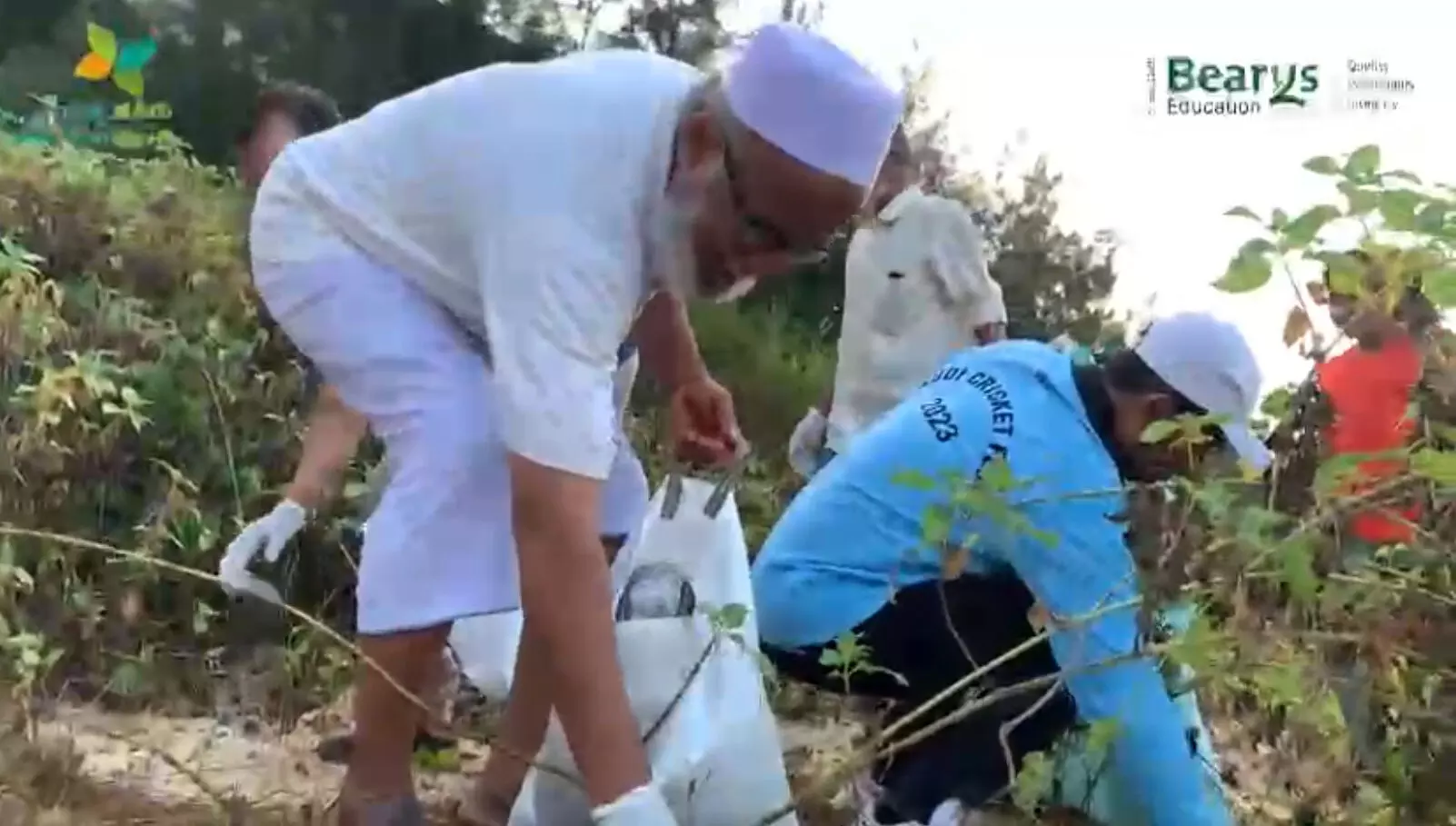


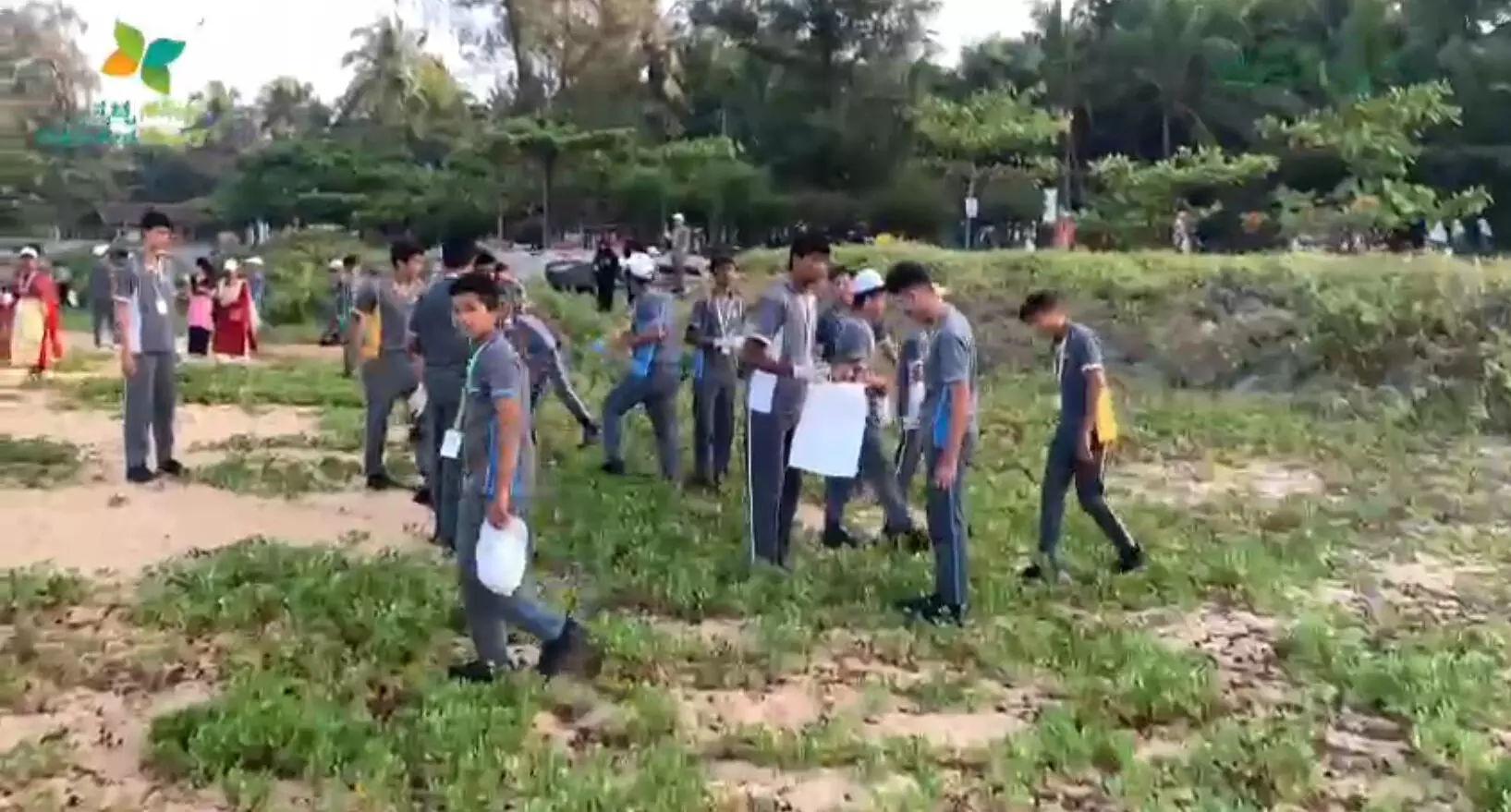




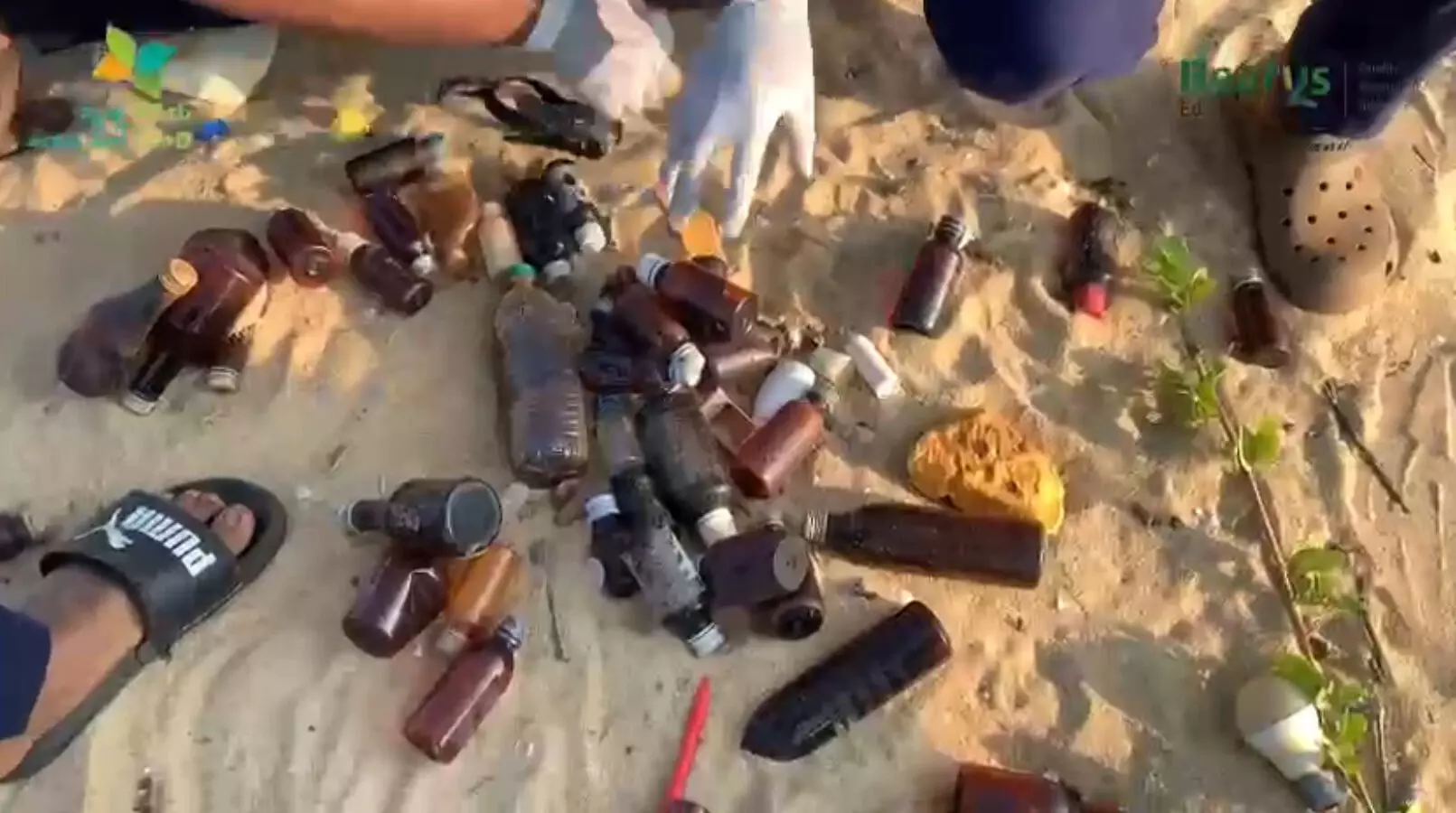
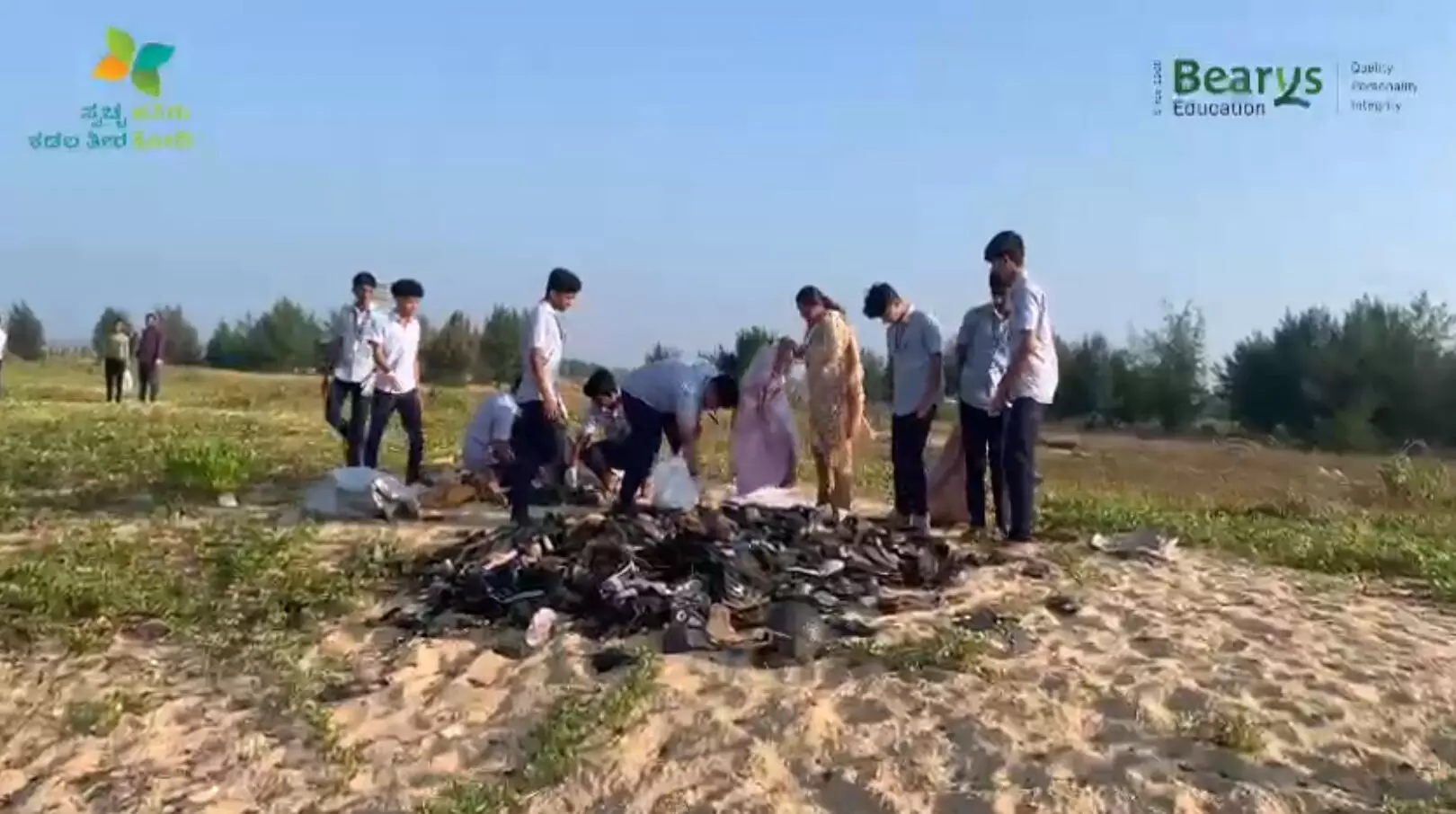

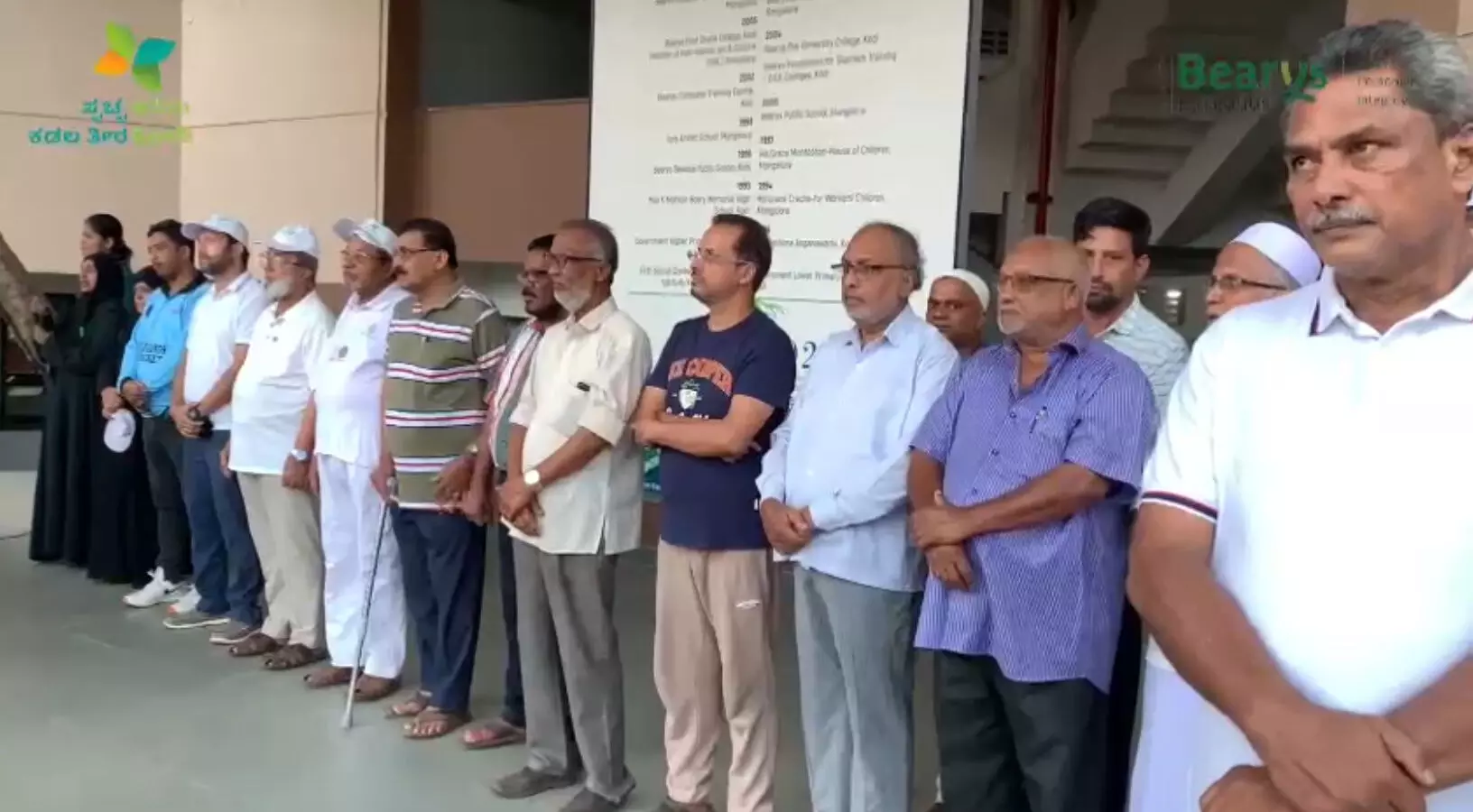
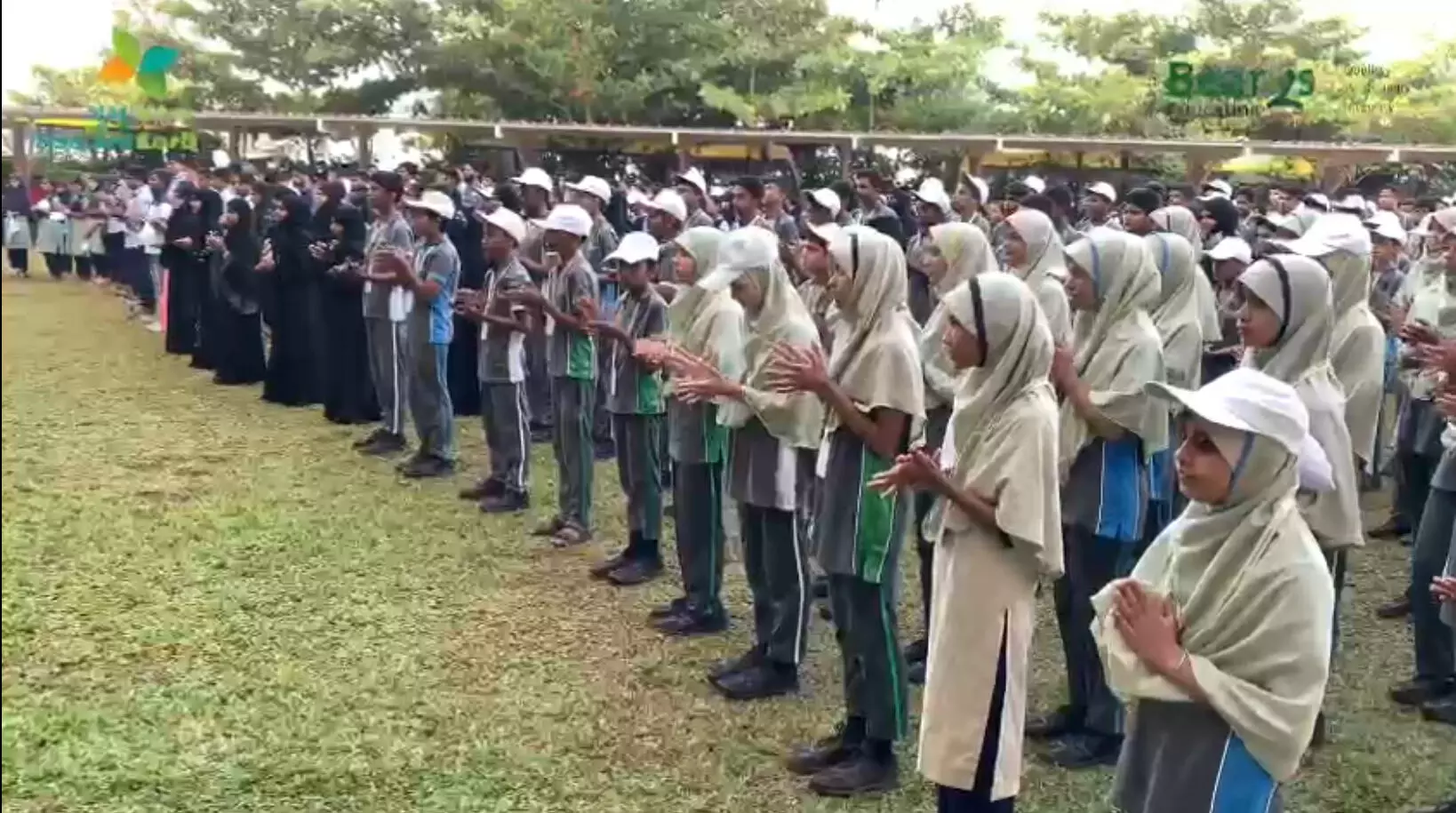
Let the Truth be known. If you read VB and like VB, please be a VB Supporter and Help us deliver the Truth to one and all.
New York/Washington (PTI): US President Donald Trump has repeated his claim of resolving the India-Pakistan conflict and asserted that Islamabad's leadership credited him for saving millions of lives.
"We stopped a potential nuclear war between Pakistan and India. And the head of Pakistan, a highly respected General, he's a Field Marshal and also the Prime Minister of Pakistan, said President Trump saved 10 million lives, maybe more...,” Trump said Monday.
He made these remarks at Mar-a-Lago, Florida, flanked by Defence Secretary Pete Hegseth, Navy Secretary John Phelan, and Secretary of State Marco Rubio.
“You know, eight planes were shot down. That war was starting to rage, and he actually said the other day that President Trump saved 10 million lives, maybe more. So we solved all these wars. The only one I haven't solved yet is Russia, Ukraine,” he said.
ALSO READ: Man murders colleague, dumps body in water tank in Palghar; held
Since May 10, when Trump announced on social media that India and Pakistan had agreed to a “full and immediate” ceasefire after a “long night” of talks mediated by Washington, he has repeated his claim over 60 times that he “helped settle” the tensions between the two neighbours.
New Delhi has consistently denied any third-party intervention.
India launched Operation Sindoor on May 7, targeting terror infrastructure in Pakistan and Pakistan-occupied Kashmir in retaliation for the April 22 Pahalgam attack that killed 26 civilians.
India and Pakistan reached an understanding on May 10 to end the conflict after four days of intense cross-border drone and missile strikes.





